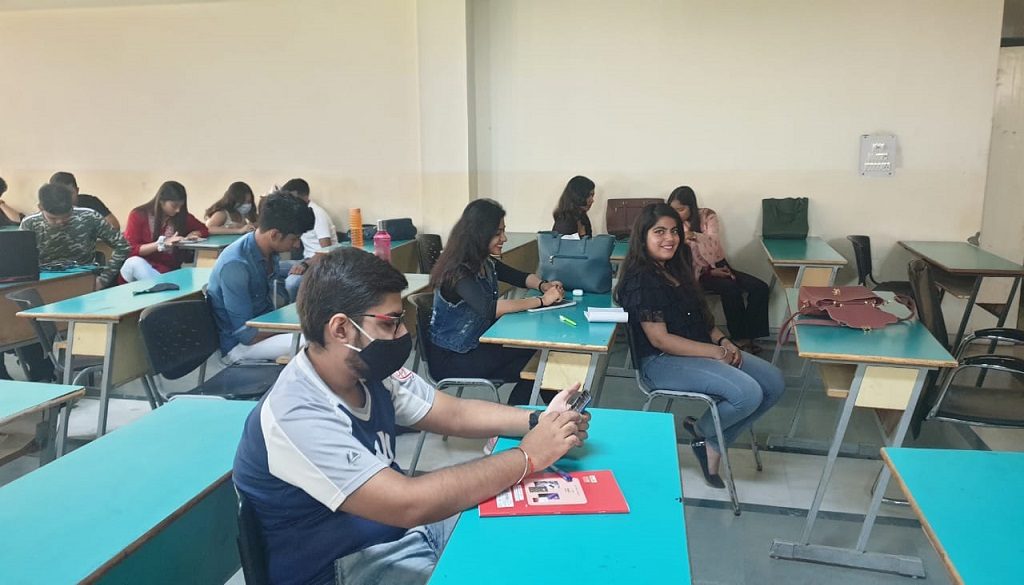Webinar on ‘Unequal Pay: Gender Discrimination at News – Media Workplace’
Department of Journalism & Mass Communication in support of the National Commission for Women, New Delhi organized a one-day webinar on ‘Unequal Pay: Gender Discrimination at news- Media Workplace’, recently; and it also happens to be the ‘International Day of Girl Child’. The webinar continued to witness several speakers add value and present perspectives from across the media industries of a working women’s life.
In his inaugural address, Prof (Dr.) Sanjay Srivatsava, MD, MREI & VC MRIIRS said, “We are a campus where everyone is treated with respect. We also have various forums for people to address their concerns of any kind. Our women cell comprises of members from across the institution”.
Prof (Dr.) Jaishri Jethwaney, Senior ICSSR Research Fellow spoke on ‘Gender Equality and Equity for Women Journalists in India- An Empirical Perspective’. “What we lack today is, more women’s perspectives in decision-making positions, though we have got guidelines in place, there needs to be a change in the mindset of people, and this can be achieved when the society learns to accept and acknowledge the competence of women.” She also talked about how women journalists are discriminated against when it comes to paying standard wages.
Prof (Dr.) Anubhuti Yadav, Professor, IIMC, addressed the gathering from an academic and an advertising perspective, and her talk is titled the ‘Role of Media in Breaking Stereotypes’. “The struggle for women to get in, survive or sustain in any media industry is tough, and this is not because of healthy competition, but due to sheer mindset of patriarchy.” Her talk included a few audio-visuals showing how gender stereotypes are being addressed. She added that the societal mindset and upbringing of our children are the real cause for gender discrimination.
Ms. Mitali Mohanty, Journalist and Assistant Professor, DJMC, FMeH, MRIIRS spoke on ‘Media Workplace Inequality- A Working Journalist’s Perspective’. Coming from journalism, she spoke about how women are treated and looked at on the field. “We are slowly progressing and we will get there, but only if the younger generation is headed in the right direction. As we know that the societal mindset is the problem. We must start looking at creating awareness among youth towards equality and equity”, she said.
A question from the audience led the panel to ponder upon several things. The question is, ‘Why Women Accept Unequal Pay?’, in response to this, Dr. Ganjoo added that, “It is subjective and a personal choice, in many cases this could be circumstantial as well. Who knows what one is going through or dealing with, due to which some may accept unequal pay. One must also look at the HR policies that are not in place at many organizations, even those that are tycoons. If we look at negotiations when it comes to pay, they are often not carried out professionally and sometimes it becomes a very unhealthy conversation making a woman feel extremely uncomfortable. We must also look at the upbringing, where girls/ women are made to adjust in various situations at home, and this leads to an agreement of the offered remuneration at the workplace”.
Dr. Lopamudra Tripathy, a Specialist in Communication for Development, UNICEF, India spoke about ‘Gender Equality at Workplace & Role of NGO’. “As people in the field of communication, it is essential that we look at our communication strategies in addressing women/ girls, be it in academic institutions or at the workplace, we must break the stereotypes and help people evolve with their mindsets”, she said.
Prof (Dr.) Sunanda Bharti, Associate Professor, Law Centre-I, University of Delhi spoke about the ‘Legal Perspectives for Gender Equality at Media Workplace’. In her address, she defined gender equality as an individual’s perception of treating another person at par with himself/herself. She highlighted unconscious biases as well. She talked about how we all can collectively add to the normalization of gender equality by becoming conscious and sensitive towards the usage of phrases and words we commonly use.



